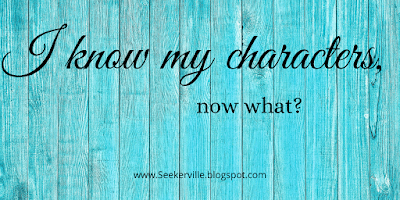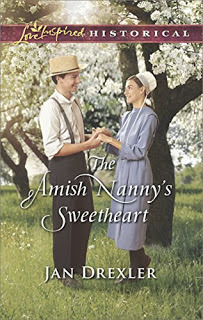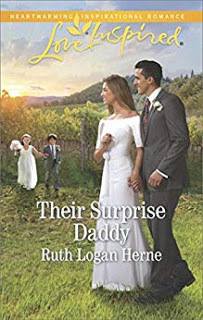God is in the details - and we should be, too (a revisit)
 I had planned to talk about adaptability today, but as I started writing, things sounded a little too familiar. After some research, I realized it was because I'd done a similar post last July. Aye, yi, yi.
I had planned to talk about adaptability today, but as I started writing, things sounded a little too familiar. After some research, I realized it was because I'd done a similar post last July. Aye, yi, yi. I tried to shift gears but found myself stuck in neutral. That's when I decided to go back and look at some of my previous posts. I mean clear back to my first post as a regular Seeker. It was good, y'all. And resonated with me and where I am in my current WIP. So I thought I'd share that post again in case someone else needed to be reminded of those same things.--------
Have you ever thought of God as detail-oriented?
Take a look at this sunset. The Masterful placement of the clouds, the exact splashes of color, the way the light filters through every layer... Pretty, for sure, yet there's nothing haphazard about it. Instead, every detail has been beautifully planned.
 Or what about the mountains? I took this photo on our last trip to Ouray, Colorado. One of the things I love most about the mountains is that there's nothing manmade. From the craggy, timeworn formations to the brilliant green on trees to the glacial blue waters, it's all God and His magnificent attention to detail.
Or what about the mountains? I took this photo on our last trip to Ouray, Colorado. One of the things I love most about the mountains is that there's nothing manmade. From the craggy, timeworn formations to the brilliant green on trees to the glacial blue waters, it's all God and His magnificent attention to detail.
 Just in case you're still skeptical, let's look at Jesus' words in Matthew 10. "And even the very hairs of your head are all numbered."
Just in case you're still skeptical, let's look at Jesus' words in Matthew 10. "And even the very hairs of your head are all numbered." You can't get more detailed than that. Even a mother who cradles her newborn and studies them for hours on end would be hard-pressed to tell you how many hairs are on the babe's head.
So how does this translate to readers and writers?
When you pick up a book and start to read, what is it that draws you in? Is it the characters? The setting?
No. It's the details of those elements. Those minute parts that add depth, bring a story to life and invite us into the relationship that lies within the book.
It's that relationship we crave, because humans were created for relationships. Yet for any relationship to happen, we have to get to know each other. Or, in this case, get to know the characters. And, just like in real life, a trust has to be built. The author has to make us care about the characters so much that we can't wait to get to the end of the book to make sure everything turns out all right.
What's a writer to do?
First and foremost, the author, the story creator, needs to know their characters intimately. Right down to the number of hairs on their head. Though that probably won't be revealed in the story.
Not only do you need to know what they look like physically, but what they look like on the inside. How do they view life? Are they perpetually happy? Have they been wounded by someone they once loved? Do they feel like God has let them down? What drives them? Why? And countless other questions, because if the author doesn't take the time to get to know their characters, the reader won't want to take the time either.
 I know my characters, now what?
I know my characters, now what?Start building that relationship right away with an opening line or paragraph that grabs the reader's attention and makes them want to keep reading. Something that immediately puts us into the story and that character's head.
It can be dialog, like in Jan Drexler's book, The Amish Nanny's Sweetheart.
 "You're sure you want to do this?"
"You're sure you want to do this?" As a reader, I'm asking, "Do what?" That one little line makes me want to keep reading.
Sometimes, it's a sentence or two that instantly tells us what the story is about, such as Ruth Logan Herne's Their Surprise Daddy.
 One minute Cruz Maldonado was a sought-after Manhattan financial investor with a law degree, a force to be reckoned with on Wall Street.The next he was the guardian for two children whose existence probably sprang from the jaws of Mexican cartels.
One minute Cruz Maldonado was a sought-after Manhattan financial investor with a law degree, a force to be reckoned with on Wall Street.The next he was the guardian for two children whose existence probably sprang from the jaws of Mexican cartels.Reader Mindy thinks, "What does a bigwig dude like that know about raising kids?" Fish out of water stories can be so fun.
Here are some other elements every writer needs to employ when working toward building a relationship with their readers.Show, don't tell - I can hear many of you new writers, and even some older ones, groaning over that phrase. We hear it so often in critiques and contest feedback, but only because it's true. Don't tell me the heroine is brokenhearted. I want to feel her pain as she watches the hero drive away. To see her standing in the cold, hands buried in her coat pockets as she dutifully forces one foot in front of the other, all the while battling back tears. She knew better than to get her hopes up, yet she's done it anyway. (Of course, this stands true for happier moments, also)Don't be afraid to hurt them - In life, we all experience pain, whether physical or emotional. Don't be afraid to hurt your characters. As a matter of fact, you need to hurt them. Have your wounded warrior meet the families of the men who died beside him, no matter how much he dreads it. Don't overdo the details - When we drop too many details at one time, it becomes the dreaded info dump. Readers don't need to know everything all at once. Think of the details of the hero/heroine's past/dreams/reason for chasing the bad guy as seasoning. Sprinkle only as much as you need for that particular bite. We don't need to know every detail of the hero's last breakup the first time we hear about it. All we really need to know is that he'd gotten burned and learned what kind of person the deceased sister of the heroine had really been.Be purposeful - Let's go back to the sunset photo. The golden orange against the blue sky. Other nights there might be some purple or pink or no clouds at all. But whatever God chooses, it's by design, with every detail precisely placed. And so it should be with our words/chapters/stories. Don't throw out something just for the sake of word count. There has to be a reason. And that reason is to allow readers to connect with your story, build that relationship and make them want to keep reading.
Details can make or break a story. Too many or not enough can leave a story lacking. But when we know our characters and are purposeful with the details, the relationship that blooms is worth the struggle.--------I think I'm going to ask you the questions I asked back in early 2018. Are you detail oriented? Have you ever thought of God that way? Readers, what draws you into a story? Writers, do you ever struggle with too many details? How do you break things down?
 Three-time Carol Award nominee, Mindy Obenhaus, writes contemporary romance for Love Inspired Books. She’s passionate about touching readers with Biblical truths in an entertaining, and sometimes adventurous, manner. When she’s not writing, she enjoys cooking and spending time with her grandchildren at her Texas ranch. Learn more at www.mindyobenhaus.com
Three-time Carol Award nominee, Mindy Obenhaus, writes contemporary romance for Love Inspired Books. She’s passionate about touching readers with Biblical truths in an entertaining, and sometimes adventurous, manner. When she’s not writing, she enjoys cooking and spending time with her grandchildren at her Texas ranch. Learn more at www.mindyobenhaus.com
Published on March 03, 2020 21:00
No comments have been added yet.



